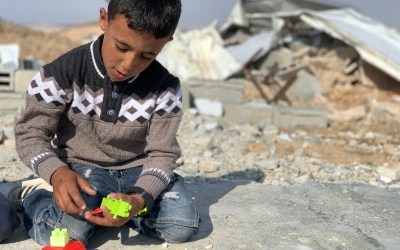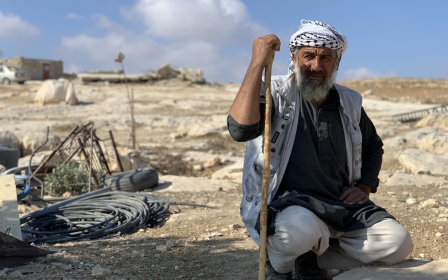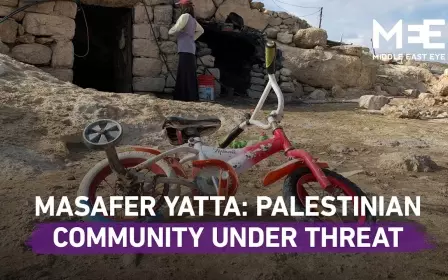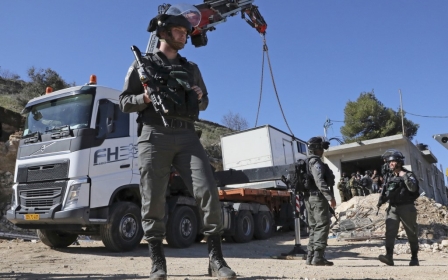Israel to begin live fire training in Palestinian community facing forced expulsion
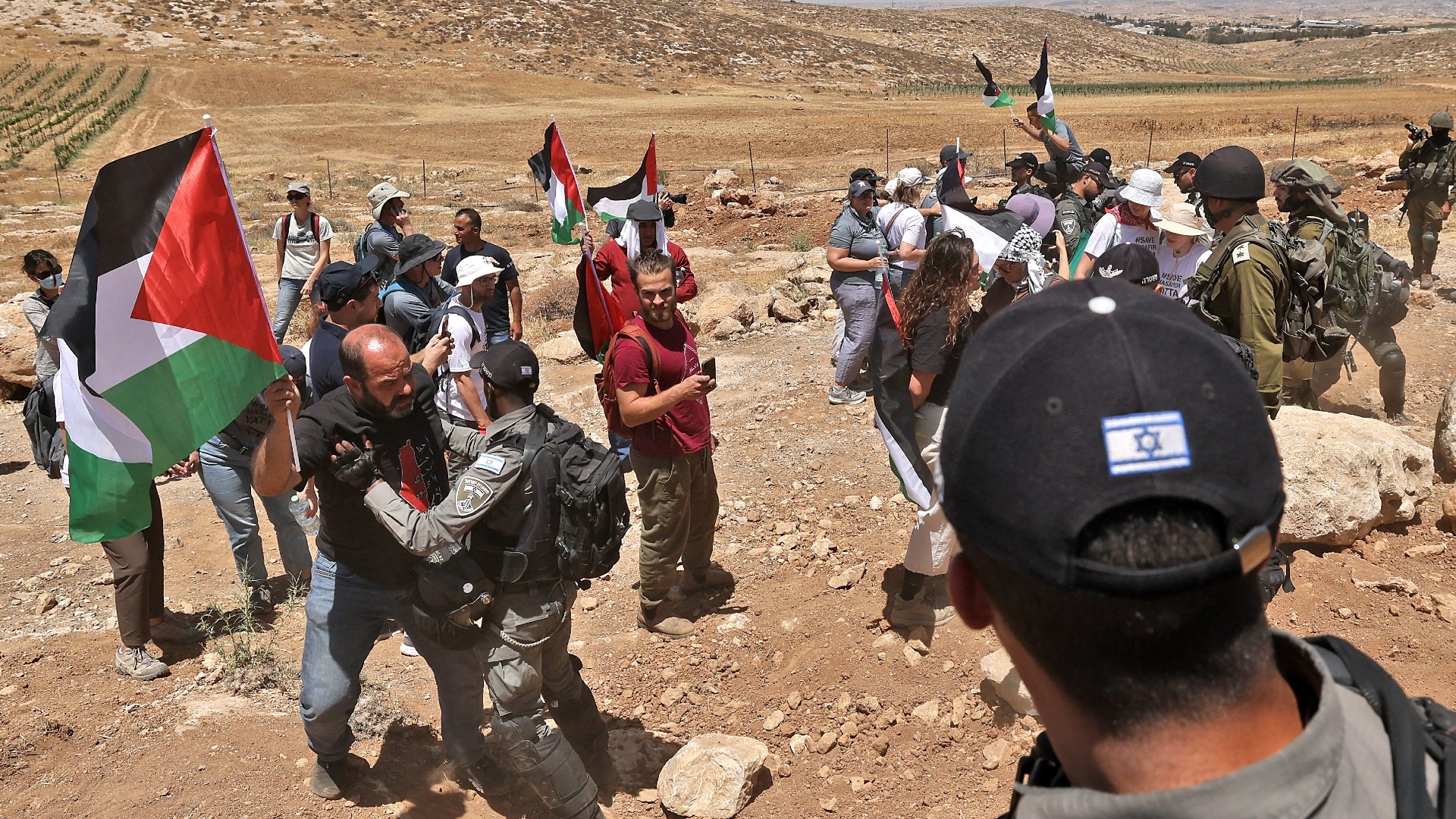
The Israeli army has announced that it will conduct a live-fire military exercise in the south of Hebron in the occupied West Bank starting next week, in what Palestinian residents view as an attempt to force them out.
According to notices handed out by the military, drills will take place from Monday until Wednesday in Masafer Yatta, a Palestinian community where more than 1,000 Palestinian are facing imminent expulsion to make way for an Israeli firing zone.
The military exercise comes a month after the Israeli Supreme Court rejected the residents' claims to the land in favour of the military, declaring the region a closed-off training area following a two-decade legal battle.
The Israeli rights group B'Tselem said that, according to information provided to residents, the army plans to conduct live-fire training from Monday.
The live drills, which will include light arms training, are expected to take place near seven villages. Still, Palestinians living in the area were not given the exact location or time the exercises were expected to take place.
New MEE newsletter: Jerusalem Dispatch
Sign up to get the latest insights and analysis on Israel-Palestine, alongside Turkey Unpacked and other MEE newsletters
It's the first military drill involving the use of live fire in the area for 20 years. The exercises are expected to last for a month, the Israeli army told Haaretz.
'They destroy the Palestinian resources, take it over so the Palestinians will be blocked in a densely populated area, isolated in ghettos'
- Jamal Juma, Palestinian activist
Palestinians living in the area say the use of live fire is a scare tactic to facilitate their eviction by pushing them out.
"This will not be the only military training they conduct, they will do it constantly and move from one location to another," Palestinian activist Jamal Juma told Middle East Eye.
"So this is a way they think is a smart way, instead of loading these people in trucks and throwing them outside."
"They destroy the Palestinian resources, take it over so the Palestinians will be blocked in a densely populated area, isolated in ghettos, another [manifestation] of the apartheid system."
Last weekend, the Israeli army outlined homes in several villages in the area and took photos of residents' IDs despite announcing the previous year that they would stop mapping villages except in extenuating circumstances.
'War crime'
The struggle of the Palestinian communities in Masafer Yatta began in 1981, when the Israeli army declared the 3,500 hectares on which Palestinians reside in the area a closed military zone, or Firing Zone 918.
In 1999, the army began removing parts of the community before a petition from the residents led to the Supreme Court temporarily freezing the evictions pending a final decision.
In early May, the green light was given to the evictions. A week later, Israeli authorities told Palestinian residents in the area to stop the construction of homes, agricultural buildings, and sheep pens ahead of an order to demolish and evict the community.
The planned evictions have been widely condemned by rights groups.
In a statement, B'Tselem said: "The justices have thus proved once again that the occupied cannot expect justice from the occupier's court.
"The decision, weaving baseless legal interpretation with decontextualised facts, makes it clear that there is no crime which the court justices will not find a way to legitimise."
In late May, more than a dozen members of US Congress sent a letter to Secretary of State Antony Blinken, calling on the White House to take immediate action to halt the forced expulsions which they said "would amount to a war crime."
Middle East Eye delivers independent and unrivalled coverage and analysis of the Middle East, North Africa and beyond. To learn more about republishing this content and the associated fees, please fill out this form. More about MEE can be found here.


